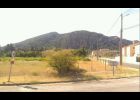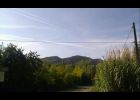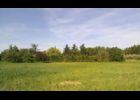Dirk-Michael Hennrich
Universidade de Lisboa, Portugal
Dirk Michael Hennrich finished his PhD at the Foundation for Science and Technology (FCH). He published several essays and poetry in Switzerland, Portugal and Brazil and translated literary and philosophical works from Portugal and Brazil.
Articles of Dirk-Michael Hennrich
Briefwechsel Flusser - Braunschweiger 1966 / Brasilien oder die Suche. Kommentar zu Vilém Flusser und Anton Braunschweiger
Inspired by Flusser’s Philosophical Fiction, and the comments “Brazil or the Search” and the “3 Letters from Anton Braunschweiger to Vilém Flusser”, I aim to intensify my personal interests on Flusser’s thinking as well his peculiar view of Brazilian nature and culture. Anton Braunschweiger was a German-Brazilian who worked as a bridge-builder in Amazonia in 1966/67, when he tried to communicate with Flusser about some strange encounters with unknown animals, which he saw firsthand in the forest, or which were described to him by natives. Flusser probably never answered because there is no letter from him in the estate of Braunschweiger who died in 2005 at the age of eighty-seven, lonely and indigent in the city of Manaus in the Amazon region.
Flusser in Robion
Robion, a small town in the Provence of southeastern France, was the second exile of Vilém Flusser and his wife. They lived there from the early 70s until his death in the early 90s, and after living for a long period in the city of São Paulo. This new but well known cultural landscape attracted a lot of philosophers, writers and artist and represented for Flusser a so called anti-Brazil, some kind of paradise in a strait opposition to the “desert” landscapes of Brazil. Here he found a prosperous landscape where several points of his thinking where connected in natural and cultural ways.
Hyperbolische Tropenlandschaft. Brasilienanschichten von Simão Vasconcelos bis Vilém Flusser
The interpretation of Brazil, mainly from authors of the 20th century, like Euclides da Cunha, Claude Levi-Strauss, and Max Bense, reveal not only some common views about tropical landscapes but also the fact that the experience of the tropics seems to generate extreme positions. These descriptions of Brazilian cities and landscapes often (and we recognize this in the work of Vilém Flusser as well), end up in hyperbolical images: the symbolical (language) when confronted with the diabolical (disorder/stammering), tries to overcome the incomprehensible with hyperbolical descriptions.
Das Ding im Werk von Vilém Flusser und Eudoro de Souza
The question about the thing is one of the main topics in the work of Vilém Flusser. It seeks to reconsider not only the phenomenology of the things and the problem between the natural and the cultural objects but, importantly, a focus on the “thing” forefronts his theory about human evolution from the manipulation of things towards the digitization of the so called non-things. The connection between Eudoro de Sousa and Vilém Flusser, both friends of the Brazilian Philosopher Vicente Ferreira da Silva in the 1950s in São Paulo, goes also back to the History of the Devil, in which Flusser reinterpreted the Devil as a) the lord of the things and b) the time and the seven sins as the inner mechanism of western civilization. In the 1980s, Eudoro de Sousa, wrote his Mythology, in which he also considers the diabolic force of instrumental reason and the necessity of recovering the symbolic possibility and the reintegration of all things in some kind of final harmony. Both philosophers where influenced by the work of Martin Heidegger, and the present essay tries to show their adaptation of Heidegger’s thinking as well as the parallels between Eudoro de Sousa’s and Vilém Flusser’s vision of overcoming the “diabolic” crisis of Western industrialized civilization.
Ein luso-brasilianischer Gang durch die „Reisebibliothek“ von Vilém Flusser
Looking at the library of Vilém Flusser, which is preserved in the Flusser-Archive in Berlin, we notice not only the wide interest of Flusser’s in all possible fields of knowledge but also the different stations in his nomadic life. The library is simultaneously an image of his intellectual journey and, especially considering his Brazilian period, a representation of Flusser’s friendships. When we search for connections between them, his books give us a notion about Flusser’s early contacts, before his return to Europe, to German, Italian and Spanish intellectuals, and most of them are connected to his great interlocutor Vincente Ferreira da Silva. But we find also an obvious relation to the lesser-known Portuguese thinkers such as Eudoro de Sousa, as well as Flusser’s acquaintance with authors like Agostinho da Silva and Delfim Santos who held great significance for the dialog between Portugal and Brazil in the 1950s.
Für eine Mythographie der Photographie
The Mythography of Photography is written as a dialog with the Philosophy of Photography of Vilém Flusser, considering the Myths not simply as a primitive state of thinking, but as the dark residuum of all kinds of modern experience. Therefore, the present Mythography of Photography tries to reveal the main Myths which we cite when we are following the gesture of Photography and which we can find hidden in the photographical apparatus. This Mythography is strictly focused on the ancient Greek Gods and shows a specified genealogy of photography initiated by the Titan Cronus – who has been confused since antiquity with Chronos – and ending with the monster Chimera, the symbol for all illusions and phantasms. Not only can we trace a genealogic connection between these two individual figures but within the mythical tale as a whole: a trace that illuminates the inner sense and some of the main concepts of Photography.



